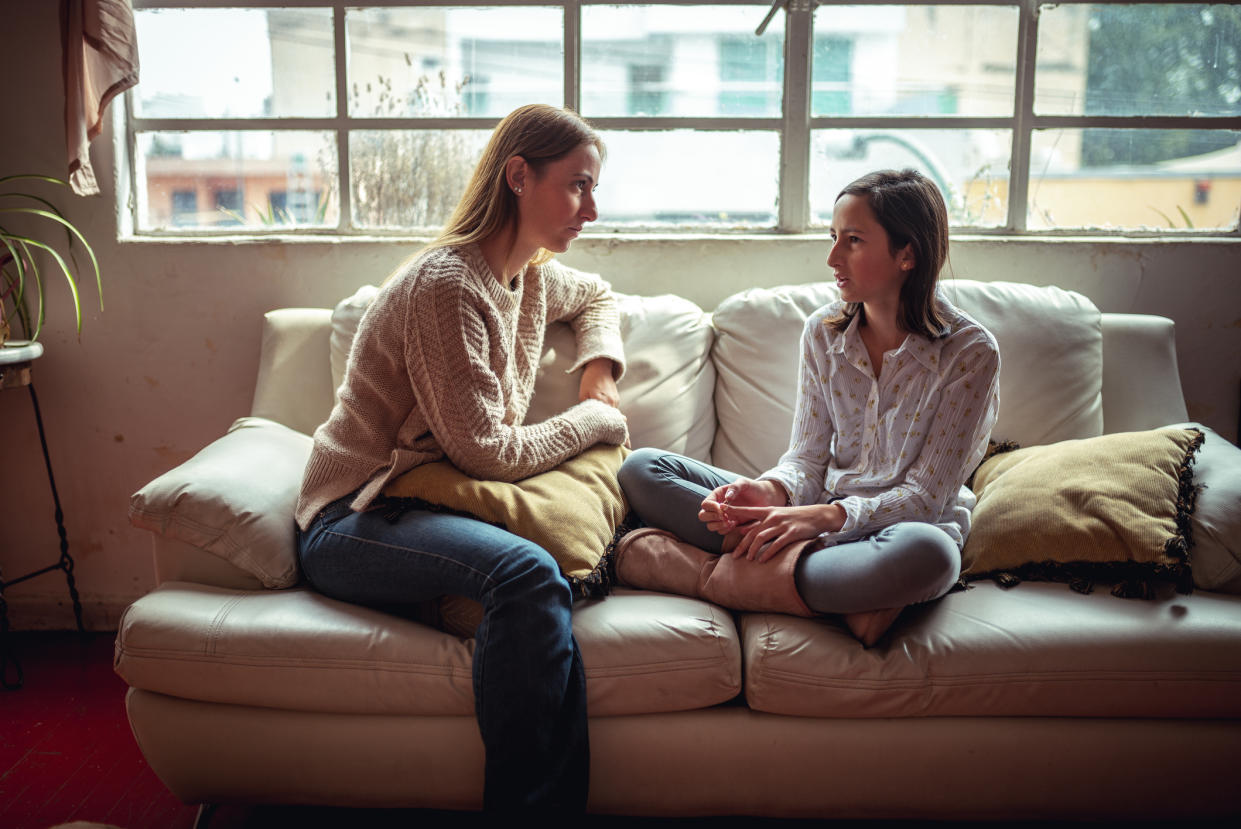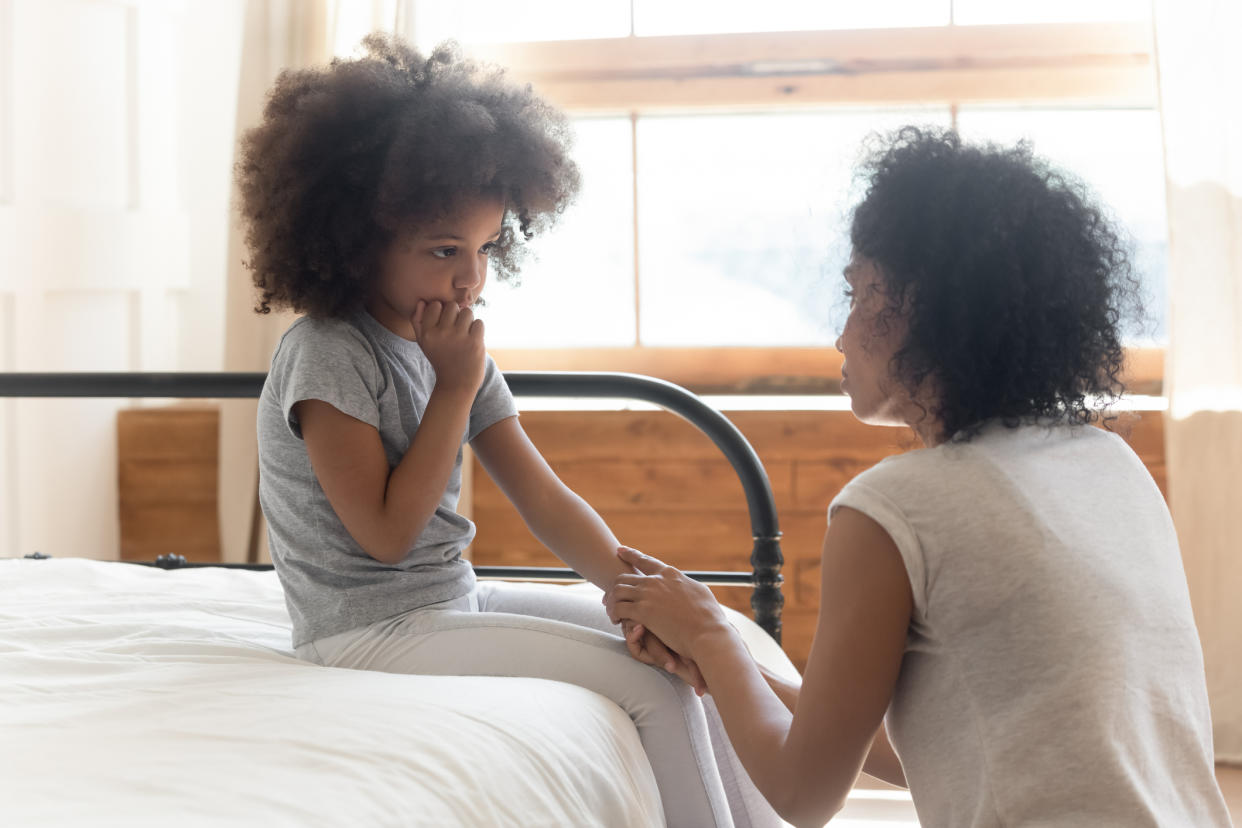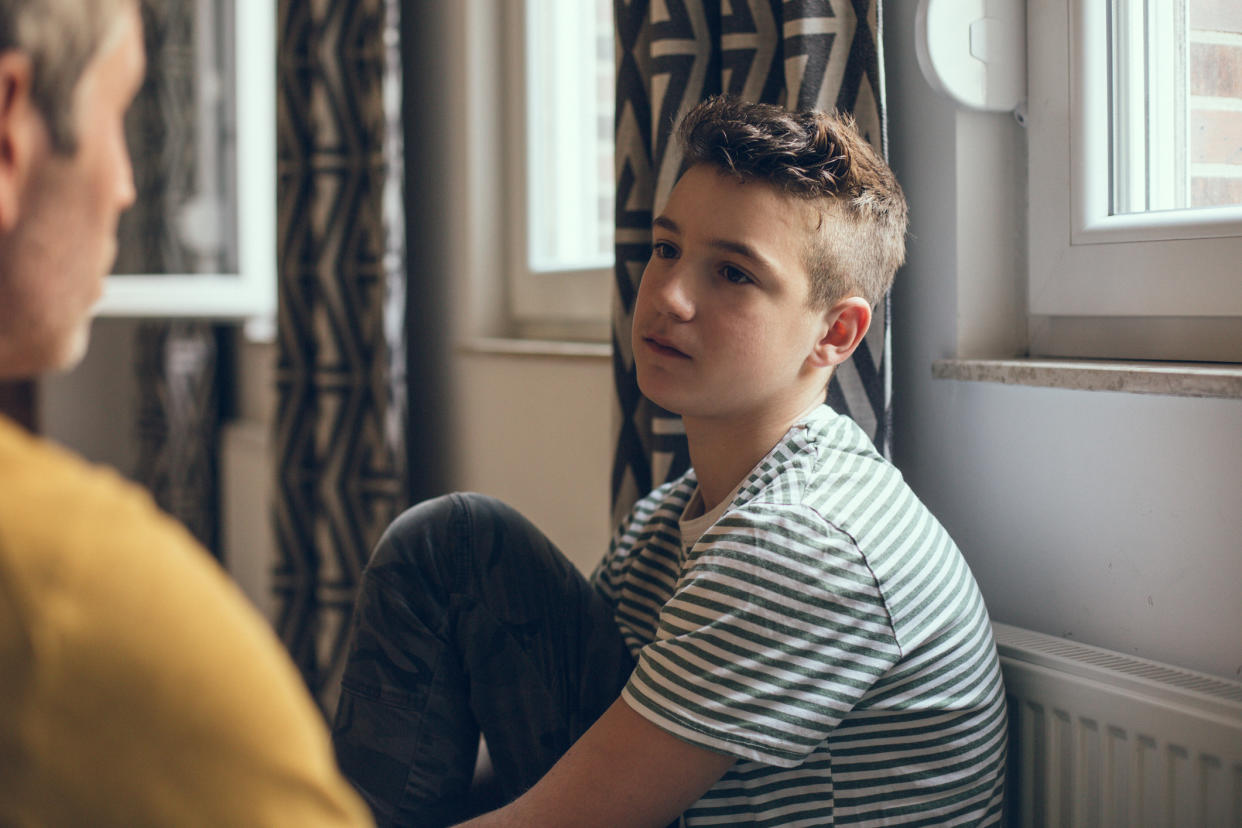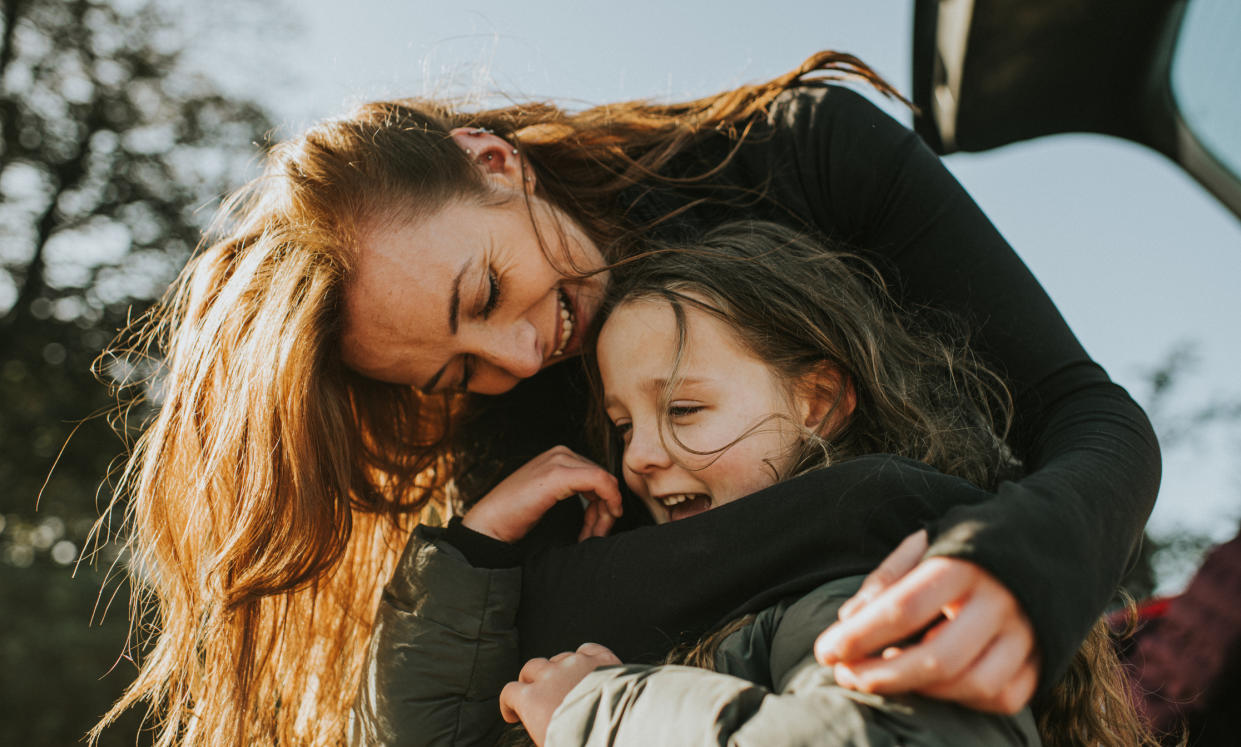How to talk to children about the Texas school shooting

We've once again woken up to news of yet another US gun tragedy involving children, and once again parents are struggling to know how to explain to their own children what it all means.
Yesterday an 18-year-old gunman opened fire at a Texas elementary school, killing at least 19 children as he went from classroom to classroom.
The death toll also included two adults, including a teacher, while the attacker was killed by a Border Patrol agent who rushed towards the school with a tactical support team.
The tragic event, the deadliest school shooting in nearly a decade since the Sandy Hook attack in 2012 when 26 people were killed, had horrifying echoes of a similar tragedy in the small Scottish town of Dunblane back in 1996.
Twenty-six years ago 16 pupils and their teacher were gunned down at Dunblane Primary School in what remains the deadliest mass shooting in British history.
On Wednesday 13 March, 1996, local man Thomas Hamilton walked into Dunblane Primary School and went through the building shooting randomly into classrooms before turning the gun on himself.
He shot dead 16 pupils – all of whom were aged just five and six years old – and 45-year-old teacher Gwen Mayor. Another 15 pupils and teachers were also injured in the attack.
The similarities didn't go unnoticed by tennis star and Dunblane survivor Andy Murray who described yesterday's tragedy as "F***ing madness" in a now deleted tweet.
Murray was just nine when the Dunblane massacre unfolded at his school.
Read more: Anxiety coping tips for events you have no control over

Murray finds it too painful to talk about face-to-face, but in an interview recorded as a voice memo on his phone for his Amazon Prime documentary Andy Murray: Resurfacing in 2019, he described how he dealt with his emotions through sport.
"My feeling towards tennis is that it's an escape for me in some ways. Because all of these things are stuff that I have bottled up. They are not things that are discussed. Tennis allows me to be that child that has all these questions, and that's why tennis is important to me."
Indeed it is difficult to comprehend the impact tragedy, like Dunblane and yesterday's Texas shooting, can have on children and teenagers.
The news footage and images of parents crying uncontrollably outside the school gates and police with guns patrolling the grounds, where hours earlier children played, are difficult for grown-ups to digest, let alone children, so knowing how or even whether to pass on that information to little ones is a debate many parents are no doubt currently wrestling.
To protect little ones from feeling anxious that a similar tragedy could unfold at their own school, the temptation for many parents could be to switch off the TV and gloss over the terrifying truth.
Read more: How to spot anxiety in your child – and how to help them
But if parents don’t frame something like yesterday's attack for their children, they will either fill in the blanks themselves or pull something together from nuggets of information gleaned from their friends in the playground.
And there’s no guarantee then that what they conjure up will be age-appropriate or even accurate. So it’s worth talking to them first.
"In the case of the Texas shootings, we are not just talking about tragic news, but it is frightening as well," explains Dr Audrey Tang, chartered psychologist and author of The Leaders Guide to Resilience.
"Sadness and fear are distinct emotions and need to be supported accordingly."

But how do we begin to talk to our children about school shootings and other tragedies?
Be as truthful as you can
In a way that feels safe, uncomplicated and is easy enough to understand. "This can be tricky, but it can be an opportunity to be creative," Dr Jeri Tikare, clinical psychologist at digital mental health platform, Kooth. He suggests using fairy tales, stories and other methods to shape their understanding.
"It is important for us not to hide things away from them because it is better for them to hear it from us, their people of safeness, as opposed to reading it or hearing it from others."
Also bearing in mind the curious nature of the mind, Dr Tikare says it is inevitable that for things that they do not understand they might go ahead and do research to look for answers.
"It can be helpful if they get their information from a reliable source which can feel containing and reassuring," Dr Tikare adds. "However, it is important to share information at a level that is developmentally right for the child and just enough to help the child feel contained and safe."
Read more: 'Anxiety' chosen by children as word of the year for 2021
Don't overload them
One of the common mistakes parents make is giving children too much information. "Try and answer any questions simply and honestly, and check if they have any more questions but don't go into lots of detail right from the start," explains Dr Amanda Gummer, child psychologist and founder of The Good Play Guide.
Watch: Mental health expert talks about dealing with school shooting trauma
Use an analogy your child can understand
"For example to understand they are not responsible for world events, explain that they can’t control the weather," suggests Dr Gummer. "You could even ask them to try to control the weather to show that their behaviour has no effect."
Limit their exposure
After educating them about the subject, validating and normalising the anxiety or feelings they might be experiencing, Dr Tikare says it can be helpful to try not to overexpose them to information. "As we know, this is very common in times like these on the television, social media, and other platforms, and this can be very distressing and exacerbate their distress," Dr Tikare explains.
Normalise their emotions
It might be helpful to talk to them about the range of emotions that they could be experiencing and normalise them. "Encourage them to speak to you about their concerns and reassure them that everything will be okay," Dr Tikare suggests.
Keep the conversation going
As well as their feelings about the shooting, this can be an opportunity to open up a conversation about their worries in general.
"Life can be hard and busy and sometimes children are aware of this and might not want to disturb you," Dr Tikare explains. "Therefore, it might be helpful to make a conscious effort to let them know that you are mindful of how difficult it can be and reassure them that you are available to talk about things.
"Giving them extra love and attention at this time can be helpful, especially at difficult times like this," he adds.

Help them express their emotions
In different ways such as writing, drawing, stories, songs and things that feel helpful for the child.
"Some children find a feelings box helpful," Dr Tikare suggests. "It might also be helpful to introduce them to some simple relaxation techniques such as taking three deep, slow breaths, breathing in for a count of three and out for three."
Up the fun factor
According to Dr Tikare, playing and having fun with your children can be helpful because it can provide a sense of distraction and help them feel more relaxed.
Dr Tang also recommends maintaining the routines you have in place, which will subconsciously give a sense of security through structure.
Consider your own reactions
Children are perceptive and are likely to pick up on your emotions, so try to be mindful of your own reactions to the news.
"This is because one of the ways children learn and develop is via observing and then modelling adult behaviour," Dr Tikare explains. "Hence, children can pick up anxieties or worries displayed by parents. Therefore, a contained reaction to the news can be helpful for children, as despite the nature of the news, they can learn to feel contained because of your reaction and vice versa."
Dr Gummer suggests letting children know that you don’t have all the answers and find the situation confusing/scary at times too.
"Share your coping strategies with them and encourage them to develop their own," she adds.
Take action
Dr Tang advises considering working with teachers and parents to involve children in safety practices and drills. "This can also help to reassure the child that protective action is being taken," she adds.
Help them process any grief
Talking about how they feel, and trying to form an understanding of why it might have happened might help, suggests Dr Tang. "But it is also worth pointing out that sometimes, things cannot be explained," she adds.
A practical way to help could involve them creating a memorial or marking the lives lost, if they have a connection to someone involved in the tragic event or any form of bereavement. "This can continue through anniversaries – whether of the date of the tragedy, or, perhaps more positively – the birthday of their friends," Dr Tang adds.


